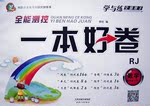题目内容
I think ______ important to prepare more food for tomorrow’s party.
A. that B. it C. this D. us
练习册系列答案
 全能测控一本好卷系列答案
全能测控一本好卷系列答案
相关题目
题目内容
I think ______ important to prepare more food for tomorrow’s party.
A. that B. it C. this D. us
 全能测控一本好卷系列答案
全能测控一本好卷系列答案